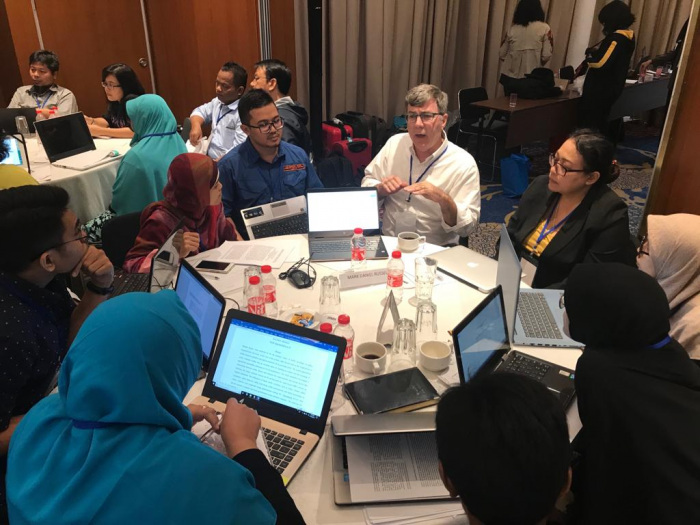Promoting Partnerships with Higher Education Institutions to Solve Development Challenges
RTAC
POSTED May 8, 2019
|Education

Under USAID’s RTAC, the Institute of International Education (IIE) is creating cross-border connections between higher education institutions, faculty, and students to cultivate research collaboration, build capacity, and exchange ideas. IIE is advancing RTAC’s objective of promoting new and inclusive partnerships between USAID and academic researchers in three key ways:
- Building a global network of university researchers. Central to advancing partnerships under RTAC is building a diverse pool of academic researchers based across the globe. As one of the network’s 12 implementing partners, IIE helps design and shape international partnerships with higher education institutions. In collaboration with several of its international offices, IIE is tapping into its diverse portfolio of programs to conduct targeted outreach to build the pool of academic researchers in the RTAC network.
- Creating systems and tools to advance new partnerships. Academic researchers accepted into the RTAC network will be granted access to exclusive, USAID-funded research opportunities. IIE developed the application process and matches researchers to relevant opportunities worldwide, which involves developing partnerships to create the right mix of technical expertise and geographic experience, while maintaining RTAC’s commitment to inclusivity and diversity.
- Leveraging existing USAID investments to expand the network. There are several existing USAID investments that promote partnerships with higher education institutions in the fields of science, technology and innovation that can enrich the RTAC network. For example, the IIE-implemented, USAID Sustainable Higher Education Research Alliances (SHERA) is a partnership program that increases the research capacity of the Indonesian higher education sector and promotes collaboration among Indonesian and U.S. higher education institutions. SHERA researchers can contribute to the RTAC network by offering technical expertise and lessons learned from their institutional partnership experience, including best practices on institutional capacity building, academic writing for journal publishing, taking research to market, and engaging women researchers in technical research fields.
Today’s global development landscape is evolving at an unprecedented pace. Harnessing the power of partnership is critical to accelerating development progress in the wake of scientific and technological advancements and increased access to information and communication. Partnerships between development actors and academic researchers represent an unparalleled opportunity to leverage the unique capabilities of the higher education community to solve critical global challenges.
International higher education partnerships promote shared learning and capacity building in a variety of ways and can have impact at both the institutional and community levels. Collaborative research studies that use cross-country and multidisciplinary partnerships can facilitate a more holistic view of a research question and can help find answers or solutions that respond to local needs. The research conducted under these types of partnerships plays an important role in improving policies, strengthening program implementation, and advancing innovative solutions in the field of development.
Through partnership opportunities, university researchers are uniquely placed to contribute to innovative solutions that address some of the world’s most pressing challenges, informing USAID programming and government policies. Learn more about how to join the RTAC Network.
